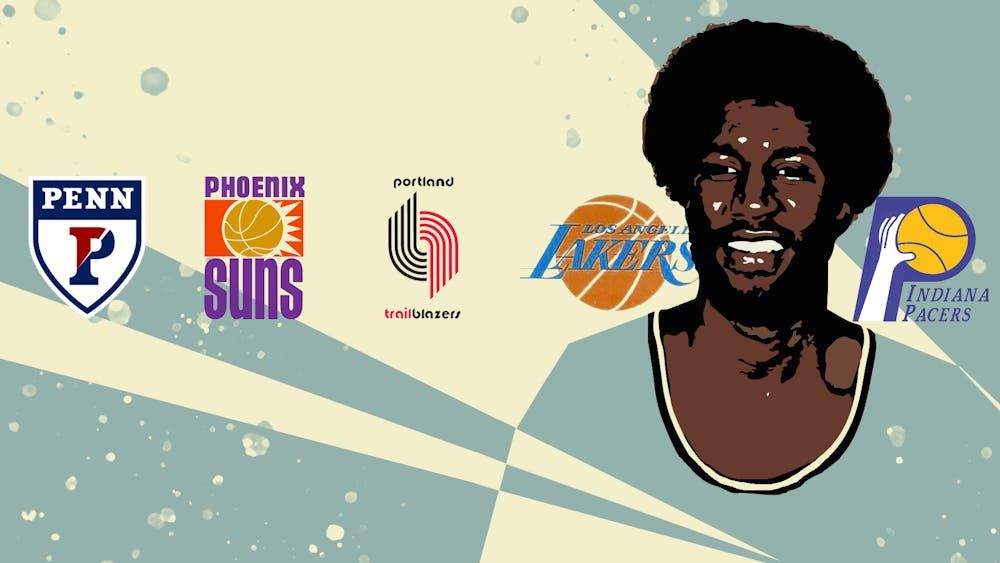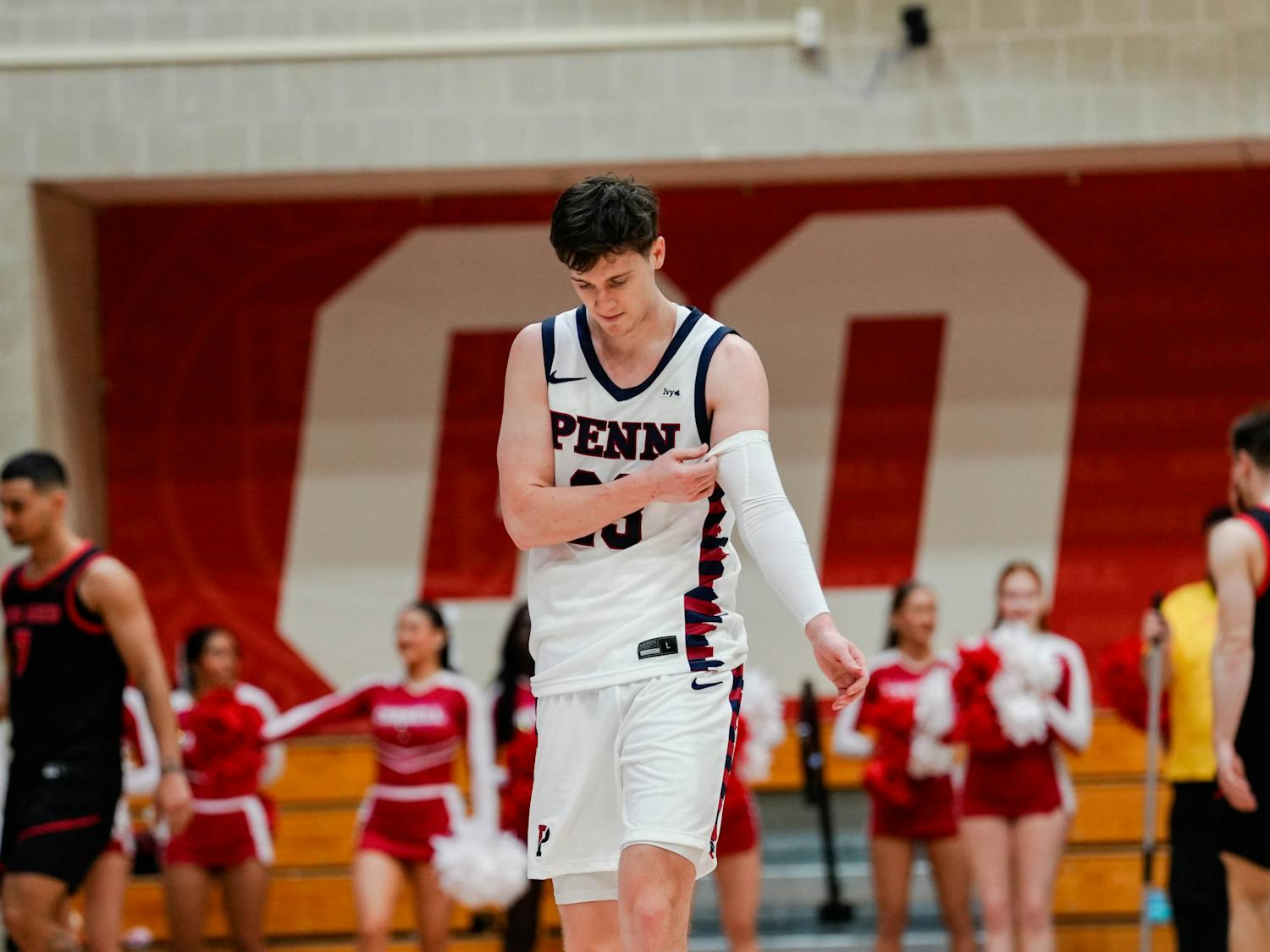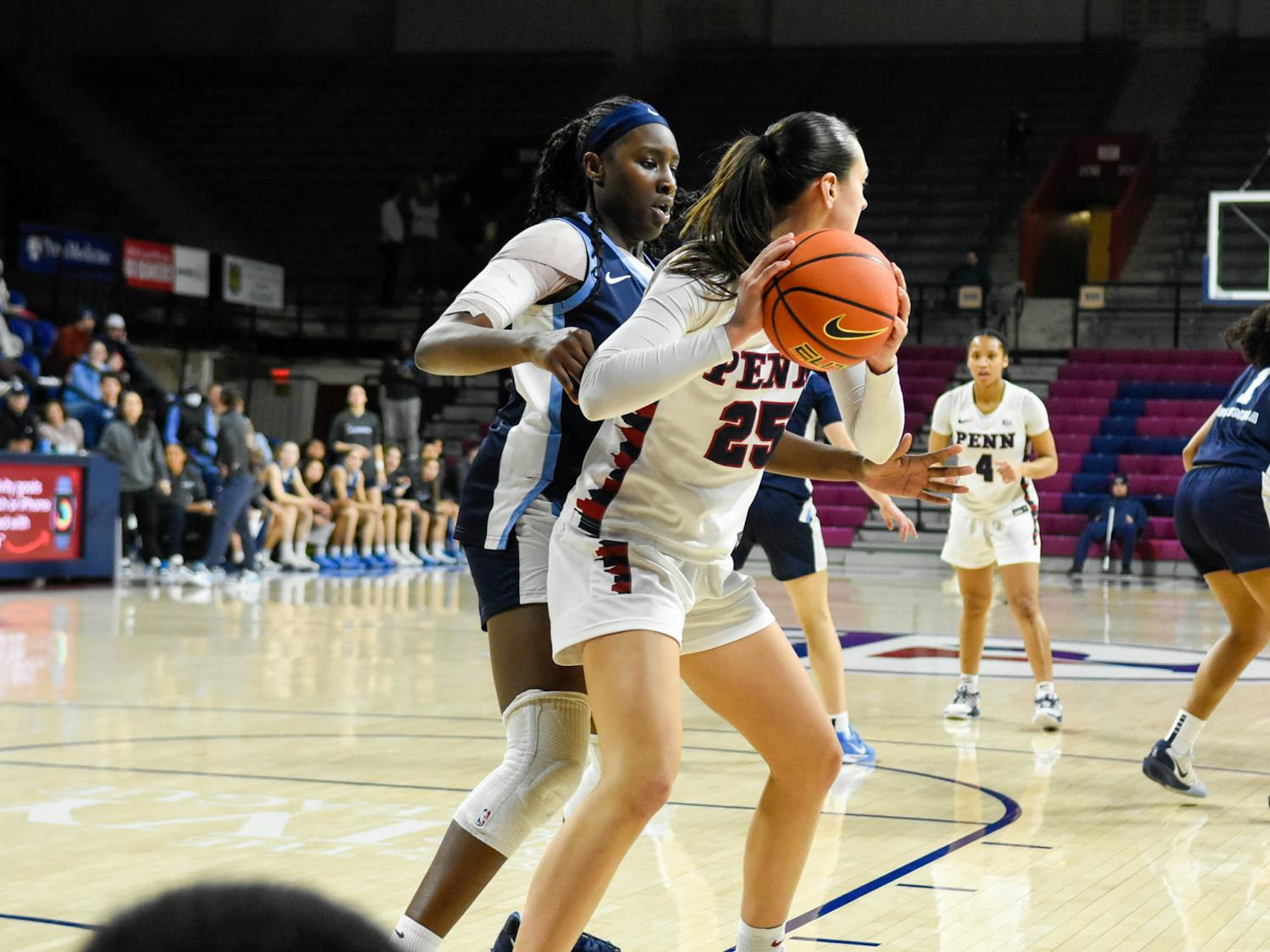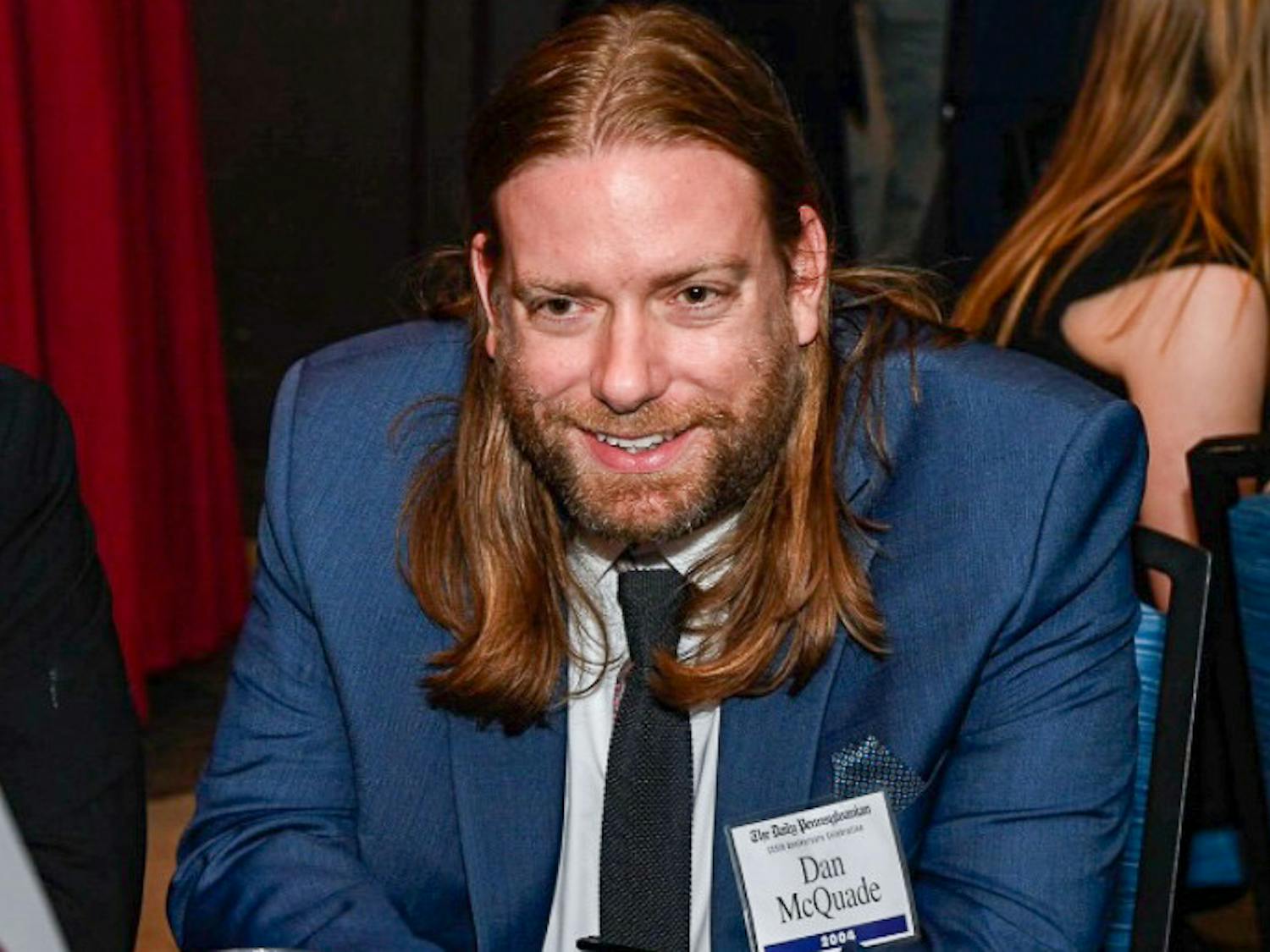Forty-five years.
That’s how long it’s been since the original “Star Wars” debuted in theaters. And that was also the last time a Penn alumnus appeared on a winning NBA Finals team.
The occasion arose in June of 1977, when David “Corky” Calhoun won the NBA title with the Portland Trail Blazers. Sharing a roster with greats like Bill Walton and Maurice Lucas, the 6-foot-7 forward brought defensive skill and rebounding prowess off the bench, skills he harnessed as a budding prospect on a thriving college team.
During Calhoun’s three All-Ivy and All-Big 5 seasons with the Quakers, Penn reached the NCAA Tournament three times, made the Elite Eight twice, and climbed as high as No. 2 in the AP poll (the highest ranking Penn has ever held).
Playing in three March Madnesses and in the competitive Big 5 and Ivy League, Calhoun was tested by some of the biggest stars in college basketball, arguably none bigger than University of Massachusetts Amherst forward Julius “Dr. J” Erving.
Midway through his first varsity season, Calhoun was tasked with defending Erving during a January 1970 matchup at the Palestra. In the first half, Erving dominated, scoring 21, while the Quakers trailed 38-35.
“For me, it was — well, he’s touted as one of the top players in the country,” Calhoun said. “And it was a good measuring stick to see what I could do against him.”
After another 20 minutes of gameplay, the Red and Blue managed to escape with a 75-65 victory over the Minutemen, thanks in large part to Erving’s inability to evade Calhoun.
RELATED
From the Cathedral to the Mecca: The homecoming of Jelani Williams
Penn legend Fran Dunphy returns to coaching with La Salle men’s basketball
“The 6-5 leaper [Erving] could manage but two more baskets in the second half thanks to some tough defense by Corky Calhoun,” the DP wrote about the game. “Calhoun, who added 13 points himself, hounded the Massachusetts star.”
The following season, Penn reached the Elite Eight, but fell short to Villanova in a shocking 90-47 drubbing, which Calhoun recalls as “one of the disappointments I still have, being that close but not achieving the Final Four round.”
As coach Dick Harter departed to Oregon that offseason, future NBA legend Chuck Daly stepped in, leading him and Calhoun to form a bond both on and off the court.
“Corky is one of the nicest guys you’ll ever want to meet,” Daly said to the DP in 1976. “He was a quiet leader; our defensive team always revolved around him. He never had any scoring ego. … He was an all-around player who did so much in his quiet way. He was a star with no whims or noise, truly an outstanding person, a joy to coach.”
After defeating Villanova in the Sweet Sixteen — avenging the previous year’s loss — the Quakers again fell short in the Elite Eight, setting Calhoun up to be a top prospect in the 1972 NBA Draft.
Calhoun was taken at No. 4 by the struggling Phoenix Suns, where he’d spend just over two seasons before being traded to the pre-Showtime Los Angeles Lakers. There, he’d play with Hall of Famers Pat Riley and Kareem Abdul-Jabbar, but yet again, after two seasons, Calhoun was cut.
“I was disappointed to have to leave the Lakers,” Calhoun said. “I’d been with Phoenix and been traded to the Lakers. I thought, well, maybe I could establish roots here with the Lakers. I got to start playing with Kareem and all, but they said, ‘No, you're not part of this.’”
His dismissal would be a blessing in disguise, though, as just four days after being cut, Calhoun signed with the Trail Blazers, where he’d win a title two years before the Lakers would win one of their own.
Portland had not achieved an above-.500 season since entering the league, but were led by talented center Bill Walton. Calhoun’s arrival, along with the acquisition of eventual four-time NBA All-Star Maurice Lucas and new head coach Jack Ramsay — who earned his doctorate at Penn — helped Portland finally make a playoff run.
After blanking the Lakers 4-0 in the Western Conference Finals — and getting Calhoun’s revenge in the process — the Trail Blazers were faced with the Dr. J-led Philadelphia 76ers in the NBA Finals.
Although he had been largely absent during the first three playoff series, Ramsay called upon Calhoun on the biggest stage possible to defend Erving, a task he had valuable experience with, harkening back to his Penn days.
“Jack Ramsay; give him credit for using the matchups to the best advantage he could,” Calhoun said. “I think they saw me as not a player who would stop Dr. J, but try to slow him down and make him work for shots and so forth.”
As Calhoun’s minutes jumped from one and six in the first two games to 18 and 19 in games four and five, Portland began to pull away with the series, and in game six on their home floor, the Trail Blazers clinched the championship, capping off a momentous season.
“What was special with that team was that the players accepted their roles, and we had great individual talent,” Calhoun said. “When you have a star player like Bill Walton, who’s recognized as, really, one of the top players in the league, and he has a type of personality that includes people, that lifts up people, that makes a big difference.
“I mean, it’s still amazing. When I look back on that, I remember being with the Lakers, I had just gotten married and I had a home in LA, and then had to give that all up. It was a disappointing thing personally. But I learned a lesson that [when] you close the door on one opportunity, another one can open up. So I was disappointed to leave the Lakers, but a year later, I was wearing a championship ring.”
After another season with Portland — cut short early in the playoffs despite a 58-24 regular season record because of Walton's foot injury — and a season and change with the Indiana Pacers, Calhoun was left with the decision of whether to keep pursuing basketball overseas or to finally begin his professional career at the age of 30.
He arrived in France assuming he would continue his basketball career, but left after 11 days when he received and accepted a job offer from Mobil where he’d work for over 30 years.
Now retired and living with his wife in North Carolina, the longest-tenured NBA player in Penn history — a mark Calhoun boasts as “a point of pride” — understands what set apart the wildly successful teams he played for.
“If you look at the NBA and the teams that never make the playoffs, it’s because they always play as individuals as opposed to a unit,” Calhoun said. “[The successful ones] understand their roles and accept their roles. That’s the key to any successful team, especially in the professional ranks.
“You have egos, you have individuals that have different family priorities and all that. But if somehow, when they’re on the basketball court, if they agree that, ‘I’ll do this type of work, you do that type of work, and together we'll be successful,’ that’s been proven over and over again. The key is working together as a unit.”
Perhaps Calhoun’s words of guidance are light of his view that his own path was the greatest one could pursue. After all, Chuck Daly described him as being devoid of “scoring ego.” But with an NBA Championship, two Elite Eight appearances, and three Ivy League titles under his belt, there should be plenty of ears to listen.









